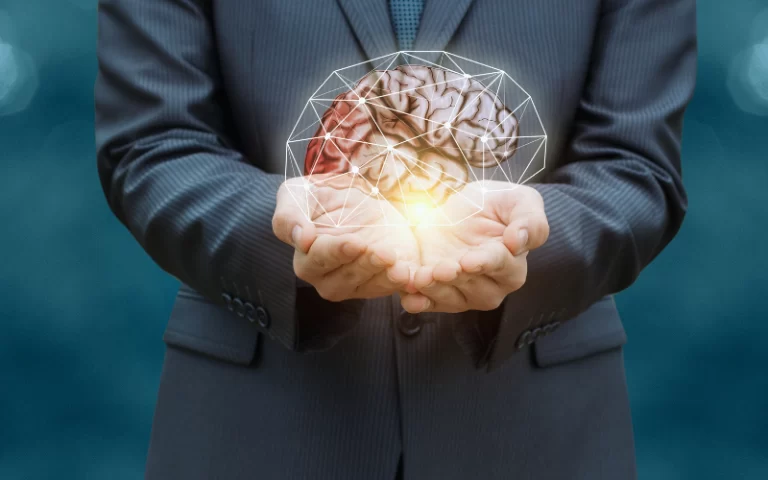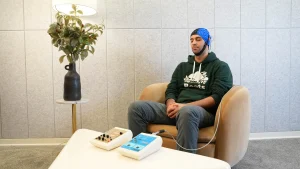The connections between physical and mental states of being in the human body are a constantly studied scientific marvel. For example, it was known that physical activity has a significant impact on the body but not too long ago was also studied to have a profound impact on the well-being of the mind. Let’s further understand how these two are connected and how even moderate activity significantly impacts overall cognitive functioning.
The Science Behind the Scenes
Exercise triggers a floodgate of positive energy within the brain that in turn impacts hormones, neurotransmitters and also neuroplasticity.
- Neurotransmitter Boost
Physical activity as simple as an evening walk or a few minutes deep breathing can stimulate the release of mood-regulating neurotransmitters. These instinctively help us beat the stressors of daily life.
- Endorphins: The body’s natural painkillers, create a feeling of a reduced perception of stress.
- Serotonin: Your tastebuds, sleep cycles and mood regulation all stem from this neurotransmitter, contributing to feelings of overall well-being.
- Dopamine: Generally associated with the idea of getting a reward, it helps with staying motivated and focused while accomplishing a task. As Dopamine levels rise during exercise it creates a sense of accomplishment which in turn boosts motivation. It’s a chicken and egg situation, for example, to feel like you want to go to the gym, you need to go to the gym first.

- Stress Reduction:
Exercise causes stress. You read that right! The body releases cortisol, its built-in alarm system of sorts when subjected to physical activity. That is what naturally makes physical activity undesirable, as your brain is hardwired to dislike it. Regular exercise helps regular cortisol levels leading you to become calmer in the long run. So although it technically is a stressor, it is also the best stress reliever.
- Brain-derived neurotrophic Factor regulation:
If you have heard that exercise helps with memory, this is why! Brain-derived neurotrophic Factor is a protein whose production is stimulated during exercise. It is generated in the part of the brain where learning and memory are stored also known as the hippocampus. And so, exercise is an effective tool to boost cognitive functioning, and even create new brain cells.
- Neuroplasticity:
The brain’s inherent ability to change throughout life, to adapt, learn, retain and maintain is a process called neuroplasticity.
Exercise or physical activity strengthens connections between brain cells, enhancing communication pathways, and promoting the growth of new neural connections. This directly correlates to improved cognitive functioning, sharper focus, and enhanced learning capacity.
- Improved Focus and Attention:
Increased blood flow to the brain is directly related to faster reaction times, better cognitive flexibility as well as sharper focus. These in turn directly impact productivity and enhance task completion as they continue to boost morale.
- Increased Self-Esteem and Confidence:
Improved body image serves as a natural booster of confidence. Completing your fitness goals gives you a sense of achievement and also physical prowess that keeps you strong and fit. Improved physical abilities further boost confidence and raise self-esteem. As your self-image changes, it also gives you more fulfillment, a sense of calm and a sense of control over your happiness.

Moving Towards a Mentally Healthier You: A Practical Guide
Here are some quick ways you can incorporate activity into your daily life. If you make it fun for yourself, you are most likely going to continue doing it too.
- Find an Activity You Enjoy: This step is crucial. Enjoyment keeps one motivated and consistent which in turn leads to a higher likelihood of doing it. Choose an activity you would enjoy and start right there, whether it’s dancing, swimming, hiking, biking, or joining a team sport.
- Start Small: You can begin by doing better than you did yesterday and that is significant enough progress. You want to make your goals realistic so that you most likely do it. You can eventually gradually increase the complexity of the task but to begin, the path of least resistance is the best (do not overthink this piece)
- Incorporate Activity into Your Daily Routine: The path of least resistance can also be met with habit stacking or simply substituting current habits. So for example, instead of taking the elevator you can take the stairs or if you wake at a certain time, keep your exercise clothes ready the night before in the place close to when you wake up to ensure you get that 15 minutes at the start of your day for your activity. The more naturally it fits in with your routine, the lesser resistance you will face incorporating it.
- Make it Social: Social reinforcement is a good place to start if you are a novice or an expert. If you fall off the course, picking a fitness class or dance class on certain days of the week at a fixed time will help you get on track again. Of course, there is the bonus of making friends or getting a workout buddy which would also make the activity enjoyable.
Conclusion
You do not need to be a marathon runner to get the mental health benefits of exercise. You can start small and simple. The benefits are unprecedented, and the investment is miniscule as compared to most other activities in life. So, what are you waiting for? Get up and get moving!
Elumind Centres for Brain Excellence is an integrated mental health centre offering solutions that can help you with your mental/brain health needs. To start your journey, book your FREE 15-MINUTE PHONE CONSULTATION. We are here for you.








